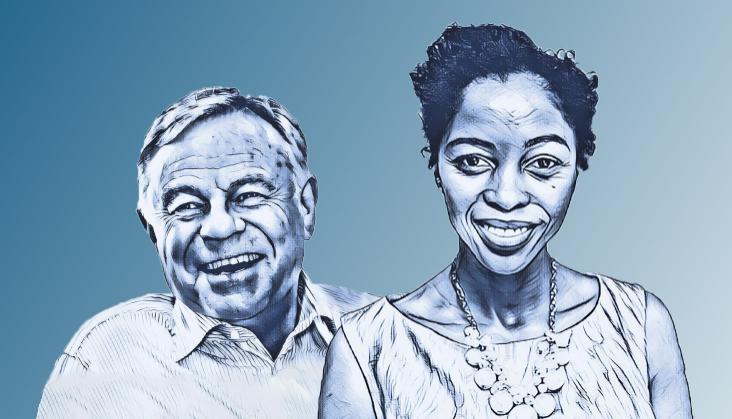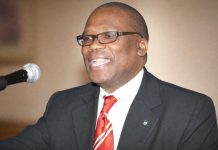Africa-Press – Lesotho. Koos Bekker has changed the face of South Africa’s digital landscape, and catapulted Naspers into the front row of African media.
Phuti Mahanyele-Dabengwa, as Naspers CEO for South Africa now has a chance to throw down a ladder to South African startups, as head of Naspers Foundry, its incubator for fresh talent.
They rank 5th and 6th on our list of Africa’s Top Digital Leaders Naspers is the Africa’s biggest digital media powerhouse. It owes its financial firepower to a single investment that skyrocketed in value.
In May 2001, Naspers bought 46.5% of Chinese internet company Tencent. The man in charge at the time was Koos Bekker. Bekker is a big name in South Africa.
After founding one of the first two pay-television services outside of the US, he took his success to Naspers as CEO in 1997. Naspers, or De Nasionale Pers Beperkt as it was originally called, was started in 1915 as a publishing company.
It now has a value of $78bn and has expanded its activities to include online retail and venture-capital investments. Before joining Naspers, Bekker founded M-Net/Multichoice pay-television service, which now operates in 48 African countries.
He was also a founding director of South Africa-based telecoms giant MTN, now the largest mobile network operator in Africa. Naspers owns Africa’s largest publishing company, Media 24, and South Africa’s largest online retailer, Takealot.
com. Naspers has not always been on the side of progress, however, and made a public apology in 2015 for funding the National Party during apartheid. The same year Bekker sold 70% of his shares in Naspers and became chairman of the board.
Tencent is now in Beijing’s crosshairs, as policymakers seek to regulate the country’s tech giants. Such a move may encourage Naspers to focus on other opportunities for growth.
In 2019 it listed its global internet investment business unit Prosus on the Euronext bourse, retaining a 56.92% stake. Naspers had already sold some of its stake in Tencent for $10bn in 2018 to have funds for other ventures, including a stake in Russia’s Mail.
ru Group. “E-commerce is not a get-rich-quick business. [. . . ] You need a good amount of patience,” Bekker told media. On 31 August, Naspers announced a deal for its Prosus company to buy Indian payment platform Billdesk for $4.7bn.
This marks an increased interest in the Indian market, with more than $9bn spent since 2014. The Billdesk deal is its biggest investment so far. Moving on from its ignominious past, Naspers in 2019 created the role of CEO for South Africa and appointed the influential entrepreneur Phuti Mahanyele-Dabengwa.
A child of Soweto who was 23 when South Africa gained its freedom, she was CEO of Shanduka Group, founded by South Africa’s current president, Cyril Ramaphosa, before forming her own black economic empowerment (BEE) investment company, Sigma Capital, in 2015.
Mahanyele-Dabengwa is a big believer in the power of technology, telling reporters: “We need greater connectivity for inclusivity. [. . . ] Technology can transform our economies, create jobs and boost growth and make possible the transition to a more sustainable and equitable society.
”
She says the focus on “healthcare connectivity” and e-commerce is a priority for Naspers moving forward, with an eye on Brazil, Russia, India, China and South Africa.
As South Africa CEO, Mahanyele-Dabengwa also oversees Naspers Labs, a social impact organisation with the aim of creating tech jobs for the unemployed in South Africa, and Naspers Foundry, a $1bn investment vehicle for early tech companies.
Seven start-ups, including Aerobotics, WhereIsMyTransport, and Food Supply Network have received R400m ($28 million) in funding. In July, the Foundry backed digital insurance advice firm Ctrl $2.3m and in early August it invested $8.3 million in the artificial intelligence insurtech startup Naked.
For More News And Analysis About Lesotho Follow Africa-Press






